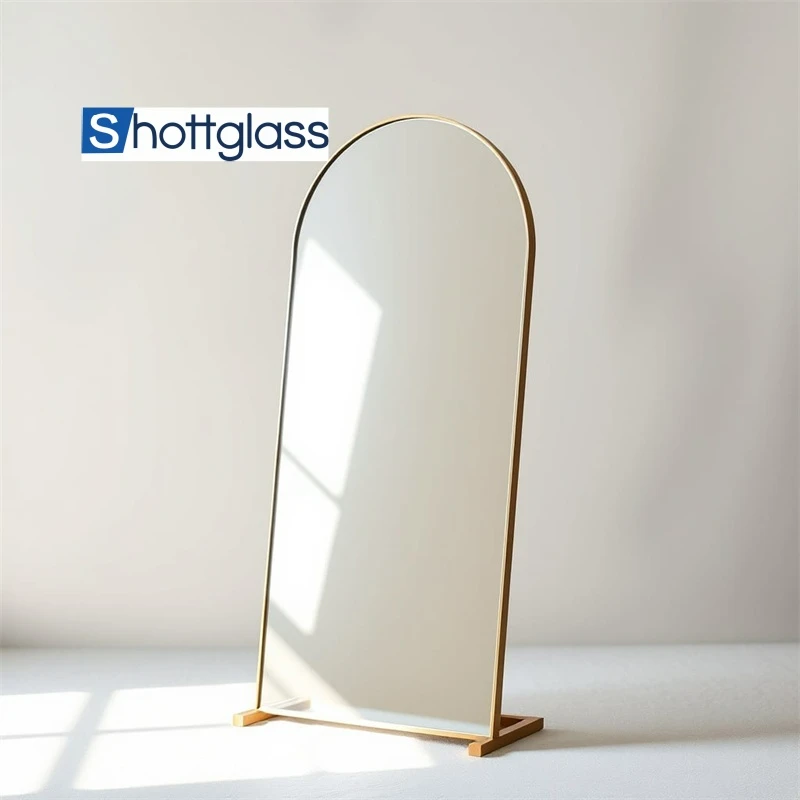Nov . 25, 2024 11:13 Back to list
float glass manufacturers
The Rise of Float Glass Manufacturers Transforming the Glass Industry
Float glass, also known as sheet glass, is an extraordinarily versatile material that has become a staple in various applications, including windows, glass doors, facades, and even decorative glass elements. The manufacturing process of float glass, which involves floating molten glass on top of molten tin to create a smooth, flat surface, has revolutionized the glass production industry since its inception in the mid-20th century. Today, float glass manufacturers play a critical role in meeting the demands of a rapidly evolving market, driven by architectural innovations, energy efficiency requirements, and aesthetic preferences.
History and Innovation in Float Glass Production
The float glass process was invented by Sir Alastair Pilkington in 1952, and it dramatically changed the landscape of glass manufacturing. Prior to this method, producing large sheets of flat glass was labor-intensive and fraught with quality inconsistencies. The float glass technique allowed for the mass production of high-quality glass sheets that were not only uniform in thickness but also without distortion. This innovation paved the way for architectural designs that were not previously feasible, as thin and large panes could now be created with ease.
Since then, float glass manufacturers have continuously sought to improve production efficiency and quality. Advances in technology, such as computerized control systems and automated handling machinery, have streamlined the manufacturing process, reducing costs and increasing output. Moreover, the growing emphasis on sustainability has led to the development of environmentally friendly production methods, including energy-efficient furnaces and recycling initiatives that allow for the reuse of cullet (waste glass) in production.
The Market for Float Glass
The global market for float glass is expanding, driven by several factors. One of the primary drivers is the construction industry, where high-quality glass is increasingly used for commercial and residential buildings. Architects and builders are drawn to float glass for its aesthetic appeal, ability to transmit natural light, and potential for enhancing energy efficiency when used in windows and facades.
Energy-efficient buildings are particularly in demand as governments and consumers become more conscientious about environmental impact. Float glass manufacturers have responded to these trends by producing low-emissivity (low-E) glass, which reflects heat while allowing light transmission. This technology is crucial for reducing energy consumption in heating and cooling systems, making float glass an integral component in sustainable building designs.
float glass manufacturers

Furthermore, the automotive industry also represents a significant market for float glass. Windshields and windows made from float glass are vital for vehicle safety and comfort. As electric vehicles become more prevalent, offering features such as panoramic roofs or enhanced visibility, float glass manufacturers are exploring innovative designs and formulations to meet evolving consumer demands.
Challenges Faced by Float Glass Manufacturers
Despite the promising market landscape, float glass manufacturers face several challenges. One significant issue is the volatility of raw material prices. The cost of silica sand, soda ash, and other essential materials can fluctuate greatly, impacting production costs and profit margins. Moreover, manufacturers must navigate rigorous environmental regulations aimed at reducing emissions and waste, necessitating continuous investment in cleaner technologies.
Another challenge is competition from alternative materials, such as plastics and composites, which may offer lower costs or additional benefits. As a result, float glass manufacturers must innovate continuously to retain their market share, focusing on unique selling points such as superior strength, thermal performance, and aesthetic options.
The Future of Float Glass Manufacturing
Looking forward, the future of float glass manufacturers appears bright, but it will require adaptation and innovation. Key trends include the integration of smart technologies for enhancing functionality—such as self-tinting glass or glazing that can adjust to changing weather conditions. Additionally, as construction evolves toward more sustainable practices, manufacturers that prioritize eco-friendly solutions and materials will likely emerge as industry leaders.
In conclusion, float glass manufacturers are an essential component of the broader glass industry, providing high-quality materials that enhance both functionality and aesthetics in a variety of applications. As they navigate the challenges of a competitive market, their ability to innovate and adapt to changing consumer needs will determine their success in the years to come. The evolution of float glass technology not only reflects advancements in manufacturing but also embodies the ongoing quest for sustainability and design excellence in our built environment.
-
Sustainable Practices in a Modern Coated Glass Factory
NewsAug.07,2025
-
Insulated Glass Unit Installation Best Practices and Tips
NewsAug.07,2025
-
Frosted Glass Types and Custom Solutions for Sale
NewsAug.07,2025
-
Current Clear Float Glass Price Trends in Global Markets
NewsAug.07,2025
-
Comparing Different Types of Laminated Glass Performance
NewsAug.07,2025
-
Best Anti Fog Bathroom Mirror Solutions for Humid Climates
NewsAug.07,2025
Related PRODUCTS













